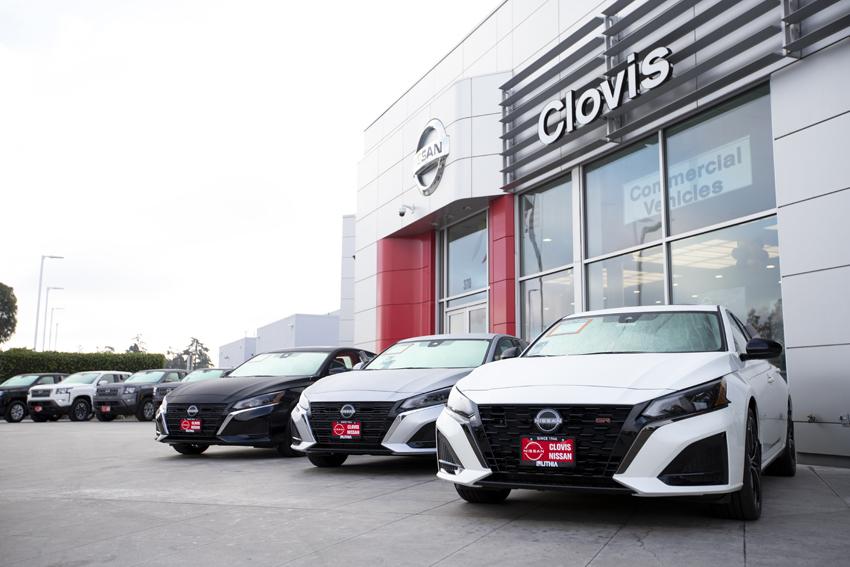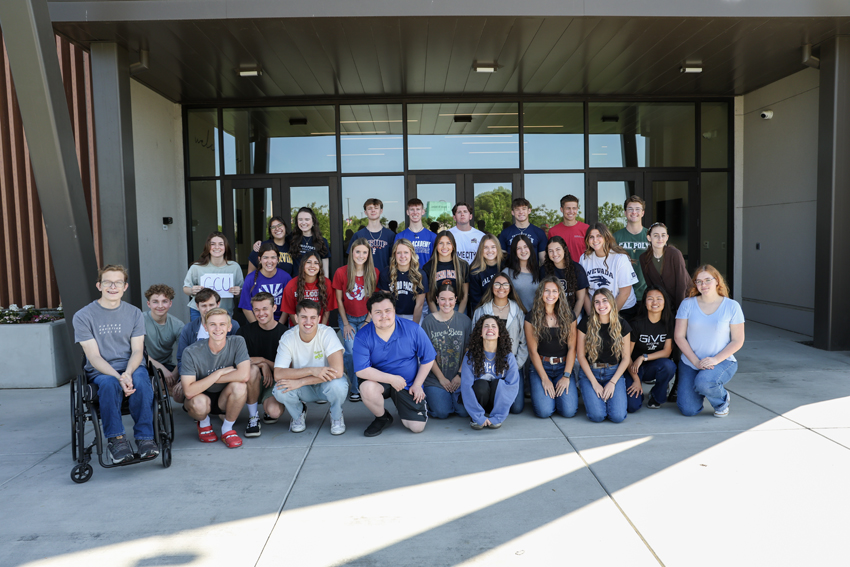Controversial requirements enforced to combat climate change
The California Electric Car Mandate requires all new vehicles sold by Californian dealerships to be electric (EV) or plug-in hybrid electric (PHEVs) by 2035. The goal is to build a healthier environment for the citizens of California by reducing air pollution. Governor Gavin Newsom first issued an executive order sparking the movement towards 100% zero-emission vehicles in 2020.

The Clean Air Act gave California unique powers under section 209 due to the state’s unusually bad air quality, geography and population size. California is given the authority to write its own emission standards, which paved the way for the electric car mandate.
Currently, there are 17 states that have adopted or are in the process of adopting California’s Zero-Emission Vehicle regulations. Among these states are Washington, Massachusetts, New York and Vermont, who are expected to adopt California’s policies.
Although all new light-duty vehicles will reach 100% zero-emission by 2035, heavy-duty vehicles such as semi-trucks and local buses won’t fall under the regulations until 2045.
200 school districts have already been funded $1.8 billion for 1,800 electric school buses. Nearly 600 of those buses have already hit the road.
Californian’s clean air has been a priority for California Air Resources Board (CARB), but repercussions of the mandate cause doubt of how beneficial it is for the environment. The resource that ensures an EV’s battery life, cobalt, has negative effect on nature.
According to the Centers for Disease Control and Prevention, large portions of cobalt exposure can damage the heart, eyes, skin, and lungs and may cause cancer. To make matters worse, hundreds of laborers in the Democratic Republic of Congo suffer in cobalt mines to fuel EV companies.
Luckily, EV production has evolved to a point where cobalt is not necessary for the batteries. Other EV battery resources include nickel-iron aluminum cathode and lithium-iron-phosphate. However, Reuters claims that the mining of these alternatives still has negative social and environmental effects on countries with large deposits.
Affordability is also one of mandate’s major issues. According to Your Advocate Alliance, the cost of an electric car averages around $65,291, 37% higher than the selling price of a gas-powered vehicle.
Dave Clergen, public information officer for CARB, claims a ZEV owner will save up to $7,500 in fuel and maintenance costs over the first 10 years of ownership. In addition, CARB states that the prices of batteries powering ZEVs have fallen more than 90% since 2011.
Clergern explains the organization’s part in helping California become 100% zero-emission.
“CARB does not set vehicle prices,” Clergern said. “However, we do work to make the benefits of zero-emission vehicles available to as many Californians as possible. Toward that goal, we fund a number of vehicle incentive programs.”
One of these programs to help consumers transition from gas to electric powered cars provides up to $9,000 towards new or used PHEVs, electric battery or a fuel cell electric vehicle. CARB is also providing an alternative option to purchasing EVs by offering $7,500 to help participants “access public, private, and shared mobility options.”
A California-based company, Clean Vehicle Assistance Program, partnered with CARB to provide qualified applicants with a maximum $2,500 towards the purchase of a hybrid vehicle and up to $5,000 for the purchase of a plug-in.

Clean Vehicle Assistance also partnered with GRID Alternatives, a solar organization that grants applicants the funds to build an at-home charging station. Applicants must contact GRID’s Alternatives Electric Vehicle Team in the 30 day period after purchasing an EV with a clean vehicle grant.
Thanks to the recent success of Tesla, EVs have reached greater popularity in California compared to the rest of the country. According to the U.S. Department of Energy, over 560,000 electric vehicles were registered across the state in 2021. Nationally, there are 1.8 million PHEVs.
This data shows California’s electric vehicle popularity as the state accounts for over 31% of the nations total PHEVs. Sophomore Aiden Millwee is counted among this percentage.
“It’s easier to brake and faster than other cars,” Millwee said. “I believe the state will benefit because you pay less money for gas. My sister had a Tesla, so my parents just got me one.”
After hearing the cons, such as cobalt mining and affordability, Millwee stood by his opinion. Although negative outcomes may come with the mandate, Milliwee continues to enjoy the benefits of driving the car.
From this it can be gathered not everyone who owns an EV is purchasing it because of the apparent green status of the vehicles. Rather, they see it as a reflection of social status or their desire for a high quality car.
Local companies remain weary of mandate
Knowing the costly price of the green vehicles, the owner of Nelson Group Automotive, Kellie Lewison, shares his take on the mandate.
“The mandate is an extraordinarily aggressive response to a problem that is not well understood,” Lewison said. “The mandate will place a considerable burden on consumers and retailers alike.”
To counteract their expense in the 2022 market, more affordable EV cars are being designed and manufactured for the next model year. Chevrolet is arranging to have their $30,000 electric SUV to be available by late 2023. Some currently available options at Fresno County‘s Nelson Group Automotive include the Nissan Leaf, Hyundai Kona, Kia Niro, Kia Sportage, Kia EV6 and Volvo C40.

While expanding their EV inventory, car dealerships are also working in other ways to accommodate the 2035 mandate. Lewison shares some insight into what the upcoming months and years will look like for his company.
“In order to meet the mandates, there is significant potential that California may need to limit the total number of vehicles that consumers can actually purchase,” Lewison said. “This would lead to limited availability and to rising costs similar to what we saw during the pandemic.”
It’s evident that a pessimistic outlook on the mandate is present among gas car company management. Companies are concerned about investment withdrawal, which could negatively seal the fate of businesses. Blake Hedrick, of Hedrick’s Chevrolet in Clovis, is weary of the mandate.
“It is a nice goal, however infrastructure is not there yet. Consumers are still weary of EVs,” Hedrick said. “The consumers will determine the success of the mandate.”
According to Hedrick, the future of gas car companies will rely on consumption increase. Affordability and appeal of cars ultimately will decide the success of gas-car companies in accommodating the mandate.
As the government continues to adapt to the constant challenges of the climate crises and attempts to make better lives for the people, consequences are inevitable. This mandate has created another divide among California residents as negative possible outcomes leave citizens worried if the transition to electric power vehicles is worth the consequences.
Regardless of what political stance we individually take, the mandate is coming and it is critical that we stay prepared for positive or negative results.
To read more from The Feather, go to Fentanyl crisis impacts teens, disregards stereotypes or College application process encouragement.
Enrique Castaneda also contributed to this article.













Taylor Beckworth • Nov 29, 2022 at 8:26 am
Great article!
Micah Friesen • Nov 29, 2022 at 8:13 am
Amazing article! all the information is very interesting, lots of stuff I didn’t know
Ezekiel VanNoy • Nov 29, 2022 at 8:06 am
Great Article! Very informative!
Amanda Johnson • Nov 29, 2022 at 8:04 am
Great article! I like how you incorporated both POVs while also explaining the consequences.